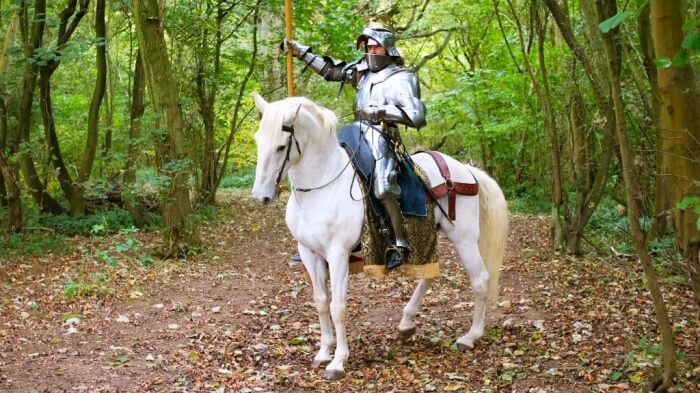Success Story: How Rebellion Negotiated 23 Years Of Change
Jason Kinglsey founded games business Rebellion with his brother in 1992. Their first creation, Aliens Versus Predator, was a smash hit but to stay on top the business has had to negotiate dramatic changes in the industry ever since.
Jason Kinglsey founded games business Rebellion with his brother in 1992. Their first creation, Aliens Versus Predator, was a smash hit but to stay on top the business has had to negotiate dramatic changes in the industry ever since.
Success Story: How Rebellion Negotiated 23 Years Of Change
Jason Kinglsey founded games business Rebellion with his brother in 1992. Their first creation, Aliens Versus Predator, was a smash hit but to stay on top the business has had to negotiate dramatic changes in the industry ever since.

Staying relevant in an industry as fast-paced as computer games is no mean feat. Games creator Rebellion's first title was for the Atari, yet nearly a quarter of a century later it is still churning out hits.
What does your business do?
Rebellion makes computer games and publishes comics and books. That’s it in summary, but in detail what my brother Chris and I have always wanted to do is to create worlds for others to explore - those worlds and adventures might be the guts of a computer game, the words in a book or the panels of a comic. They’re all simply a way to explore the extraordinary.
What do you consider to be your ‘best’ titles
Most recently the Sniper Elite series and the Zombie Army series have been very successful. Both were released and immediately went into the top of the sales charts almost world-wide, and continue to do well for us as word of mouth and social media spread their strong game play.
However, ‘best’ is one of those words that can mean different things at different times. We’ve never really chased awards, but have won quite a few of them for many of our games. Each game we release has things that I’m very proud of achieving, so maybe each title could lay claim to being ‘the best’ at something.
Even our ‘worst game’ has the best closing credits track (not safe for work or for the easily offended).
How did you get into gaming?
At school, whilst following a pretty science-focused curriculum, which I loved, I also was very involved with fantasy fiction and Sci-Fi. That in turn got me looking into some of the earliest role playing games like Dungeons and Dragons and the less well known Tunnels & Trolls. As computers became more powerful, technology and games seemed to merge into a new vista of possibilities.
What did the industry look like when you started out?
When we started out there were already some reasonably sized publishing companies importing games from the USA, though mostly it was small garage businesses and a few much older ‘business men’ who realised quickly that there were naive, enthusiastic, young games makers who could be exploited. In effect, a classic emerging market with all the good and bad that accompanies such an emergence.
"We don’t want to add too many new people to our head-count, but we do want to expand and make more games. Just how to do that is the tricky bit."
How has it evolved ever since?
The biggest changes we’ve seen have been relatively recent. The explosion of digital distribution and the collapse of the high street games shops have fundamentally changed how we do business. Now we can reach a games player directly, and update and improve the game even after somebody has purchased it.
We can also get pretty immediate and personal feedback from fans or commentators which helps make the next game better.
How has your business developed and what big shifts have there been?
The biggest shift has been the expansion of digital distribution. Places where you can download your games like Steam and GOG have meant we can reach our game playing audience throughout the world, relatively cheaply and easily. This allows us to keep selling a game long after the first three month window of sales favoured by retail back in the day.
What is the biggest mistake you have made and how did you put it right?
I’ve made many mistakes, most pretty minor on reflection, but the biggest I would characterise as choosing the wrong people to work with, and then realising too late and having a load of hassle getting rid of them.
Was there significant resistance to you publishing your own games?
There’s never been any active resistance to developers publishing their own games, it’s always been a bit more ‘background’ than that. More that there were a set of high hurdles that were costly to overcome. A few years ago there was a pretty closed shop of gatekeepers who simply wouldn’t let you in to play. These days though, all that has changed.
How has your business grown since you did it?
Each year we’ve expanded, added profitability and generally maintained a pretty decent upwards trajectory, though recently that curve will have increased dramatically. We don’t want to add too many new people to our head-count, but we do want to expand and make more games. Just how to do that is the tricky bit.
What is your best tip for future gaming entrepreneurs?
Being in business is about balancing the optimist and the pessimist within you. Generally things aren’t as bad as you thought they might be, nor quite as good as you had hoped. Plan for the worst but hope for the best. Reality will be somewhere in between those two places.
Unless you are a gambling sort who enjoys the high stakes situation, don’t take on business gambles that you can’t afford to lose. Some - very few - businesses are overnight successes; most are carved out by constant hard work and modestly good decisions.
What does the future look like for the business?
It looks awesome and very exciting. We have big plans, but, like all the best and most ambitious plans, they must remain secret for now!"
Jason Kingsley tweets @RebellionJason
Thanks for signing up to Minutehack alerts.
Brilliant editorials heading your way soon.
Okay, Thanks!



